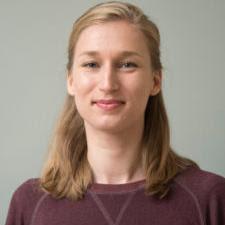Meet Our Researchers

ALEKS GOEVA
Aleks Goeva is a statistician specializing in machine-learning models for understanding the human brain.
The human brain is one of the most complex structures in the living world. For centuries, scientists have struggled to understand it. Only in the past few years have state of the art tools like single-cell technologies and 3D cellular models offered hope of gaining insight into the workings of the brain—not to mention mystifying disorders such as schizophrenia, autism, and Alzheimer’s. But they’re also generating unprecedented amounts of data that labs are currently ill-equipped to handle. For her project, Aleks is experimenting with a novel data-analysis method to tackle this growing mountain of data.
Thanks to tools like single-cell technologies, we are generating gargantuan amounts of data about brain cells. For example, one experiment conducted by my lab examined 690,000 cells from nine regions of the adult mouse brain, identified 565 distinct groups of cells, and then compared and contrasted all the cell types across regions of the brain. As you might imagine, this took quite a while! It made me wonder: Could we develop a computational technique that would allow us to analyze brain cell data more rapidly?
Borrowing from the world of pure mathematics, my colleagues and I will use our BroadIgnite award to develop a new data-analysis model that can streamline our efforts to uncover biologically significant representations of brain cell data. This model, which we call a nonlinear dimensionality approach, will employ machine learning. If it works, it could become the basis of a software tool that labs all over the world could use to gain insights into the roles brain cells play in schizophrenia, autism, and Alzheimer’s disease.